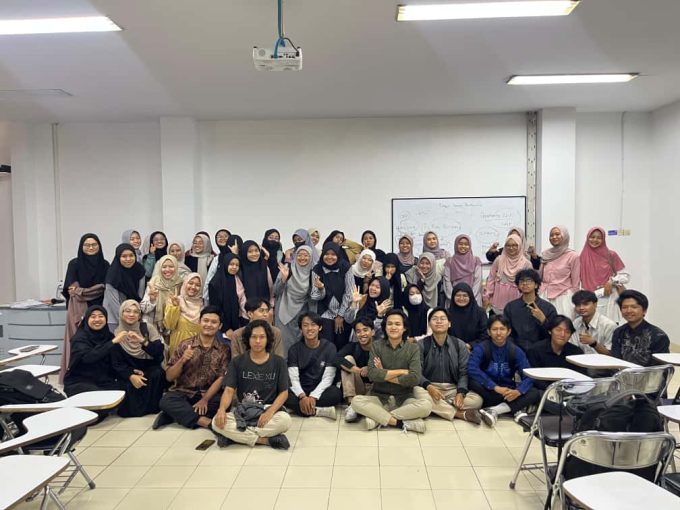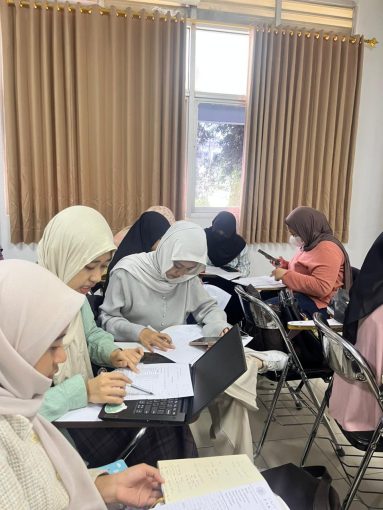
Yogyakarta, October 20, 2025 – The Arabic Study Program, Faculty of Cultural Sciences, Universitas Gadjah Mada, continued its eighth session of the Entrepreneurship course with lecturer Diyah Wikan Rakhmatika, S.S., M.A.. This session carried the theme “Business Funding Opportunities”, focusing on strategies to acquire, manage, and utilize financial resources effectively and ethically to support business sustainability.
In her presentation, Diyah explained that funding is a fundamental aspect of business continuity and growth. She emphasized that a successful entrepreneur is not only one who can generate creative ideas but also one who can manage finances wisely and determine the right funding strategy. Students were introduced to two main sources of business capital — internal funding (personal savings, reinvested profits, and support from family or friends) and external funding (banks, investors, venture capital, crowdfunding, Islamic financing, and government grants).
Furthermore, Diyah highlighted the importance of preparing a compelling and credible business proposal as a key to attracting investors. A well-crafted proposal, she noted, should clearly present the business vision, market potential, financial projections, and realistic return plans. She also underscored the principles of transparency, accountability, and Islamic ethics in financial management to ensure that businesses operate honestly, fairly, and sustainably.

The session also explored real-world funding practices in Indonesia, such as the government’s Kredit Usaha Rakyat (KUR) program, venture capital schemes from institutions like East Ventures and Mandiri Capital Indonesia, as well as donation- and investment-based crowdfunding models. Through case studies, students were encouraged to identify opportunities and challenges in funding initiatives relevant to literature- and language-based entrepreneurship, including independent publishing, digital literacy content creation, and language learning platforms.
This session provided valuable insights for Arabic Study Program students to develop businesses that are not only intellectually creative but also financially robust. By understanding sustainable business funding strategies, students are expected to design independent, ethical, and impact-driven entrepreneurial models.
The course also supports the achievement of the Sustainable Development Goals (SDGs) — particularly SDG 4 (Quality Education) through practical entrepreneurship education, SDG 8 (Decent Work and Economic Growth) by fostering competitive young entrepreneurs, and SDG 9 (Industry, Innovation, and Infrastructure) by promoting innovation and sustainable resource management.
Author: Muhammad Ardiansyah
#SASTRAARAB
#SASTRAARABUGM
#FIBUGM
#SDGs4:QualityEducation
#SDGs8:DecentWorkandEconomicGrowth
#SDGs9:Industry,Innovation,andInfrastructure